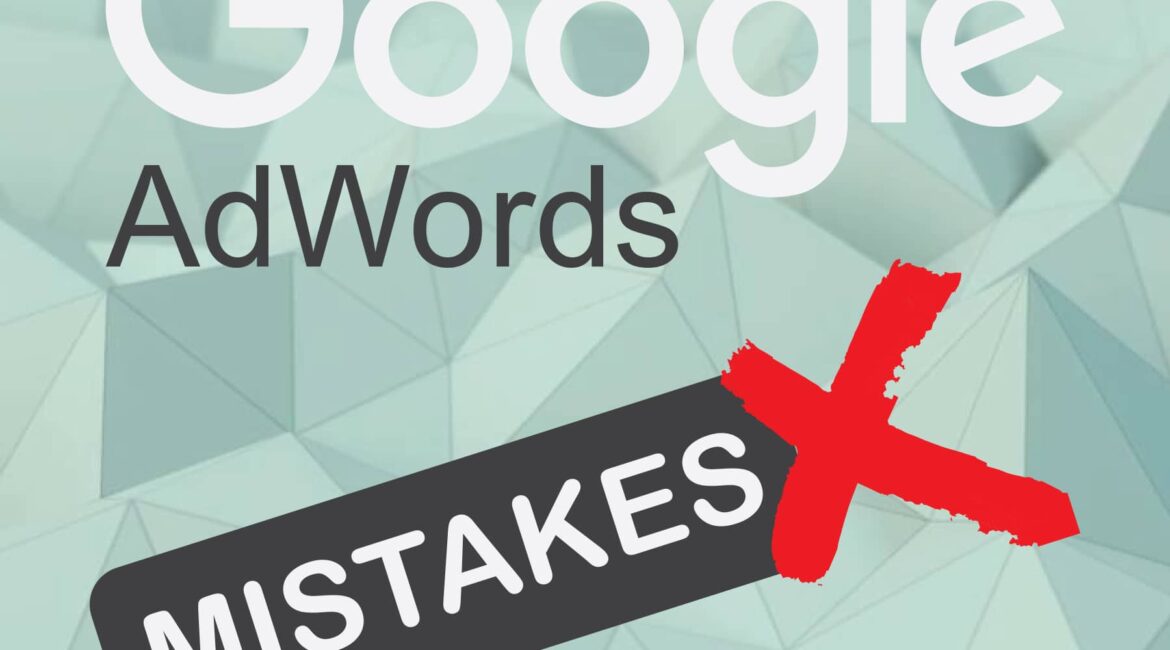Avoiding common AdWords PPC Management mistakes can make a huge difference in performance. Many business owners blame AdWords for bad results that could have been avoided had they hired a certified AdWords professional or a professional digital marketing agency. Here are 13 AdWords mistakes you should avoid at all costs:
1- Not adding negative keywords to your campaign:
Adding negative keywords can reduce costs by excluding keywords where you might be spending money but not getting results. They can also improve your ads click through rate which will often improve your keywords quality score. For accounts with several campaigns we suggest creating negative keywords lists.
2- Using the same text ad on all ad groups:
We strongly advise that a minimum of 3 text ads per ad group are used, two for desktop and one for mobile ads. Try to make your ads standout from your competition by making them direct and appealing. They should also inform the user what to expect next once they click on your ads. Testing various calls to actions is also a highly recommended practice.
3- Not performing any A/B testing:
A/B testing (sometimes called split testing) is comparing two web page versions to see which one performs better. Testing can be with web page layouts, colors, call to action, buttons, etc.
4- Broad remarketing campaigns:
Remarketing is a great way to recapture the attention of users who have tendency to convert on your website. A common mistake is not to avoid targeting everyone who bounced off right away. Targeting audience who have spent time browsing and interaction on your website will certainly make your remarketing campaigns much more effective.
5- Not turning off the content network:
When setting up a campaign by default the content network contextual targeting is selected. This option needs careful adjustments otherwise your budget will be quickly depleted.
6- Sending all traffic to your homepage:
If you have a utilities online store and you happen to be selling fridges, stoves, microwaves, etc., by directing your traffic to the products page instead of the homepage you can be sure that your return on investment would be greater.
7- Not setting up tracking:
Setting up AdWords conversion tracking and Google Analytics is a must and is one of the biggest Google AdWords mistakes.
8- Not evaluating device or network performance:
Evaluating device performance and optimizing bids accordingly will most definitely improve your cost per acquisition. This can also help to identify problems with your mobile site. As far as the network performance is concerned, consider disabling the option in case the performance is lackluster.
9- Not evaluating the locations performance:
If for instance your targeted locations include Canada, it is advisable to break down the countries performance by cities and adjust bids accordingly.
10- Not taking advantage of ad extensions:
If you are serious about getting the best results possible you should take full advantage of all types of ad extensions, especially that they now play a positive role in quality score.
11- Making decisions based on one metric:
When optimizing your AdWords campaigns it can be risky to look at only one important metric. You need to consider all the main metrics before making adjustments.
12- Structuring your account based on products and services:
Your account structure should be based on keywords themes and not products or services. Your campaign is compromised by ad groups keywords and ads. The best way to build these ad groups is by focusing on themes. Even though a single product might have many keywords which represent that product, you should never put keywords that bear no resemblance in wording, within the same ad group. For example, dating and matchmaking are basically the same thing. However; if you search for dating and see ads for matchmaking you might not click on them.
13- Not bidding on your branded keywords:
Many case studies demonstrate that being listed organically as well as on the paid listings can result in a much higher click through rate. In addition, bidding on your own branded terms could also cause your competition to receive fewer clicks. If you don’t bid on your branded keywords, your competition will have the opportunity to display their ads above your organic listings and thus causing you to risk losing valuable traffic.
Conclusion
It is now rather apparent that when avoiding these Adwords mistakes, one can be certain that one’s AdWords account will be significantly efficient and thus potentially optimized for success.




